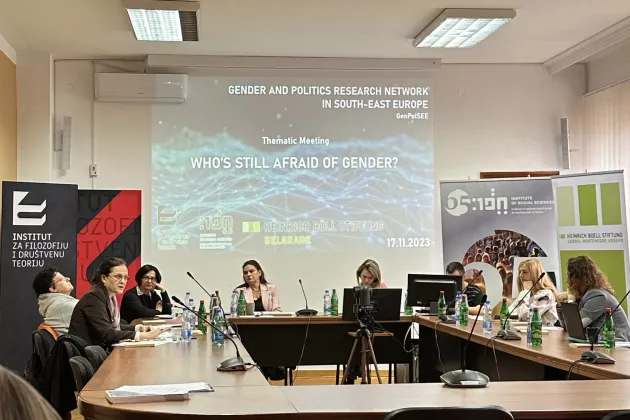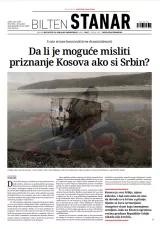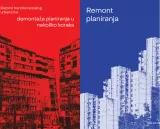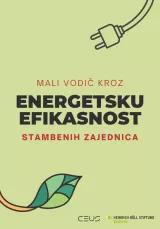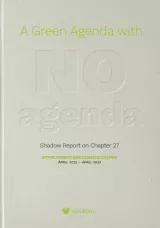HBS Belgrade Holiday Wrap-Up 2023
Looking forward to the holidays, looking back on our year
Dear friends and colleagues,
At the end of an eventful year, the HBS Belgrade team would like to look back at what we have accomplished with our partners in 2023. Therefore, we have wrapped up this small package for you to unwrap and read through.
Below we would like to present a selection of our activities and publications, and thank our partners in Kosovo, Montenegro and Serbia for their trusting cooperation. We feel privileged and look forward to working together with you, the brave realists who resist the injustice, the backsliding of democracy, the destruction of the environment and the brutal political culture in the region, in the New Year!
Our field of work has remained volatile this year, because the political context in the region could barely take a breath: the effects of the ongoing political crisis in Montenegro resulted in presidential elections finally being held in April, and parliamentary elections in June. However, the elections do not seem to have led to an internal political stabilisation of the country, as evidenced by the arduous coalition-building process between the pro-European and pro-Serbian parties, as well as the process of putting together the cabinet under the leadership of the Europe Now movement.
Serbia and Kosovo were shaken by violence: 19 people, mostly children and young people lost their lives in two shootings in Belgrade and a village near Mladenovac and Smederevo. Tens of thousands of people took to the streets for weeks in a row. These protests, which took place under the motto “Serbia without violence”, erupted out of grief and anger, and spread across 40 cities and communities in Serbia, were the largest seen in the last 20 years.
Even though the US/EU policy with regard to the (stagnating) normalization process between Serbia and Kosovo is still based on pacification, parallel to the negotiation process, there were recurring tensions and local and isolated violence in the North of Kosovo. Escalations in the North of Kosovo and on the border with Serbia were only diffused by the direct intervention of international actors and KFOR on two occasions.
The latest elections in Serbia well demonstrate the increasingly oppressive course of the SNS-led government. The campaign period was marked by an unfair and unbalanced environment, while election day was marked by questionable situations. Nevertheless, the pro-European opposition achieved significant results in Serbia and especially in Belgrade, where the final results are still disputed.
You may find an overview of the analyses here:
- Snap parliamentary election in Montenegro - again with no clear majority
- The Long Summer of 2023: Why do we need to talk about the protests in Serbia?
- Serbia after the Elections: Disappointment, Protests, and the Pursuit of Justice
- Enlargement Uncertainty: Reframing EU-Western Balkans Relations
There were also positive developments in the political landscape of Serbia: our long-term partner Ne davimo Beograd, a civic movement that emerged out of urban protests, has successfully transformed into a party, Zeleno-levi front (the Green-Left Front), and chosen two co-presidents: Biljana Đorđević and Radomir Lazović. Congratulations on the gender-equal vote! ZLF has been inspired to take on a leading role in the electoral coalition Srbija protiv nasilja. In spite of the extremely difficult conditions during the election campaign and the numerous electoral irregularities, the pro-European opposition in Serbia is on course towards considerable accomplishments.
We are accompanying Zeleno-levi front in these extremely challenging political circumstances in Serbia by mediating contacts within the European green family and political stakeholders. Through our support for the party-affiliated think tank Centar za zelene politike, we want to contribute to establishing sustainable city development policies in Belgrade.
There have also been changes to our team: our long-serving colleague Miloš Ćirić left the office in May, and in July, we welcomed Olivera Šurdić as our new Office and Event Manager.
It is with both joy and sadness that we say goodbye to one of the most important people in our office since 2006 - Paola Petrić. The good news, however, is that Paola will remain a colleague of ours. From February 2024, she will take over as Office Director of the Heinrich Böll Stiftung Office in Sarajevo from Judith Brand. We thank her for her many years of engagement and look forward to working regionally with her!
And now we are looking for a new colleague!

Nino Lejava
On behalf of the HBS Belgrade Team
Housing and Urban Planning
Engaging with civic initiatives defending the right to the city remains the cornerstone of our work. Our partners have continued to help local activists find a voice in urban planning procedures, equipping them with the technical knowledge they need to formulate their objections to unwanted investor-led plans.
Terrestrial Forum 2023: Horizons of Change
This year marked the second edition of our flagship partnership with the Ministry of Space - the Terrestrial Forum conference. It brought together over 100 progressive activists, academics, and politicians in the small town of Požega for four days of discussions on topics ranging from deliberative democracy, sustainability, to political strategy and exchange. The content was divided into three modules: Political Economy of Urban Development, Deliberative Democracy, and Climate Justice.
Political Economy of Urban Development
This first introductory session explored the specific position of space in the capitalist economy and how the contradictory roles of use-value and exchange-value influence the development of conflicting interests regarding the use and development of the city.
Deliberative Democracy
This panel introduced participants to the democratic ‘alter-politics’ that emerged through experiments of bottom-up movement, civic initiatives and collective platforms across Europe.
Climate Justice
The module on Just energy transition aimed to bring forth the problems, dilemmas, and potential directions of social changes related to this process. These changes were examined through the lens of social justice and impact that the transition (in its different shapes and forms) can have on people, especially those living in energy poverty and carbon-intensive regions.
Representative democracy in crisis and possible responses / Democratic alter-politics - Ministarstvo prostora
 Watch on YouTube
Watch on YouTube
Financialization and commercialization of the city - the role of space in the age of easy money - Ministarstvo prostora
 Watch on YouTube
Watch on YouTube
Facing the Past
Recognizing that the unfinished process of dealing with the past in the Western Balkans region is in danger of being cast aside as a political topic, this year we devoted more of our resources to explicitly tackling this topic through our work, including through publications, forums, and events. This renewed focus on the past in the present will also be reflected in our upcoming program.
Perspectives - The Past is Now
The final edition of our flagship publication came out this year, dealing with the topic of the wartime narratives from the past still haunting the present in the Western Balkans.
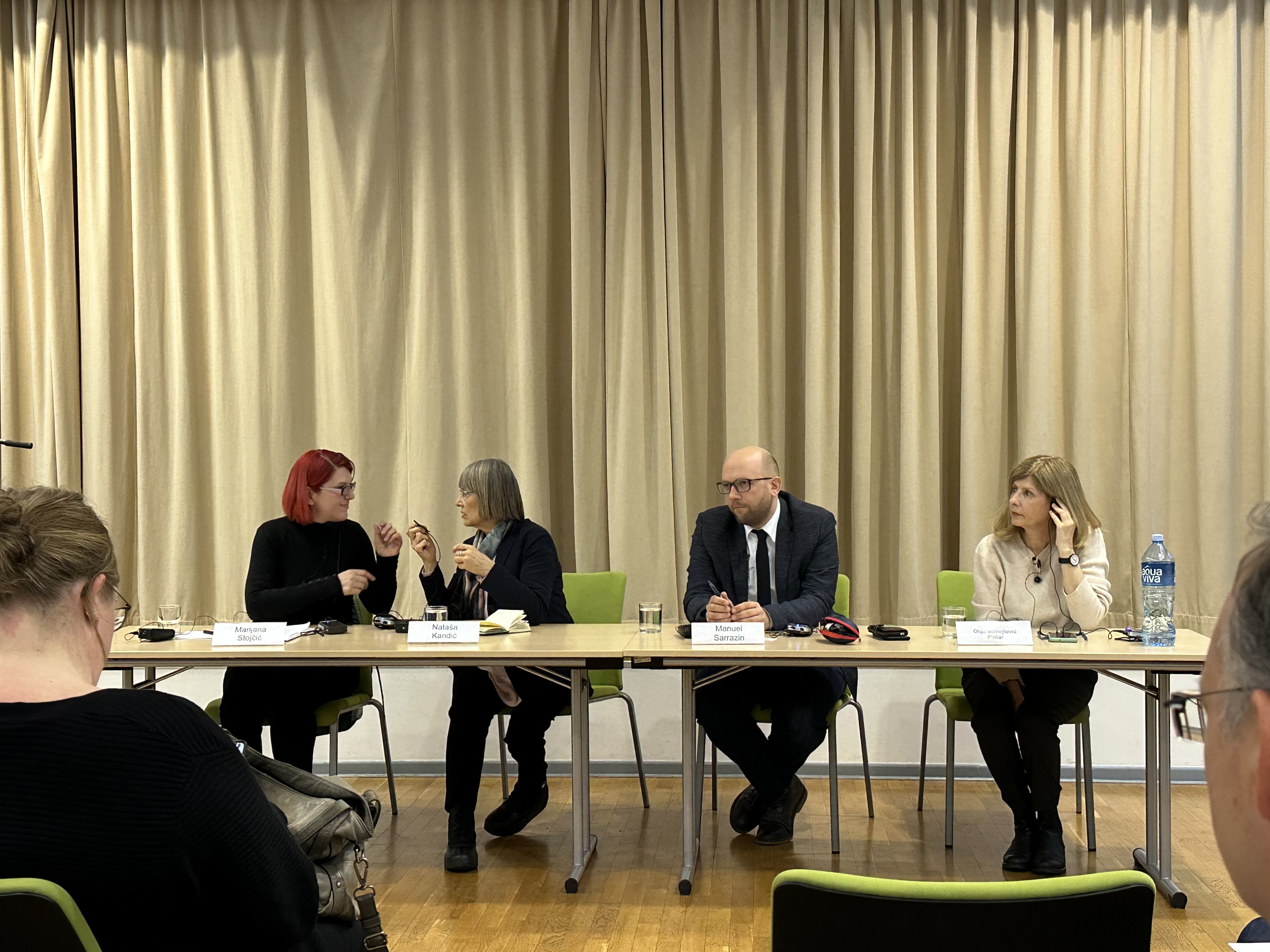
Mladi i odnos prema prošlosti: Razgovor sa Marčelom - Heinrich Böll Stiftung - Srbija, Crna Gora, Kosovo
 Watch on YouTube
Watch on YouTube
In November, we co-organized an event with the Youth Initiative for Human Rights, moderated by rapper Marčelo, with the question - why are young people not interested in engaging with the past?
Public History Fest
This year we supported the Public History Festival, organized by the Center for Public History, for the first time. The Festival included panel discussions, debates, and historical walking tours of Belgrade, regarding local history form a progressive perspective.
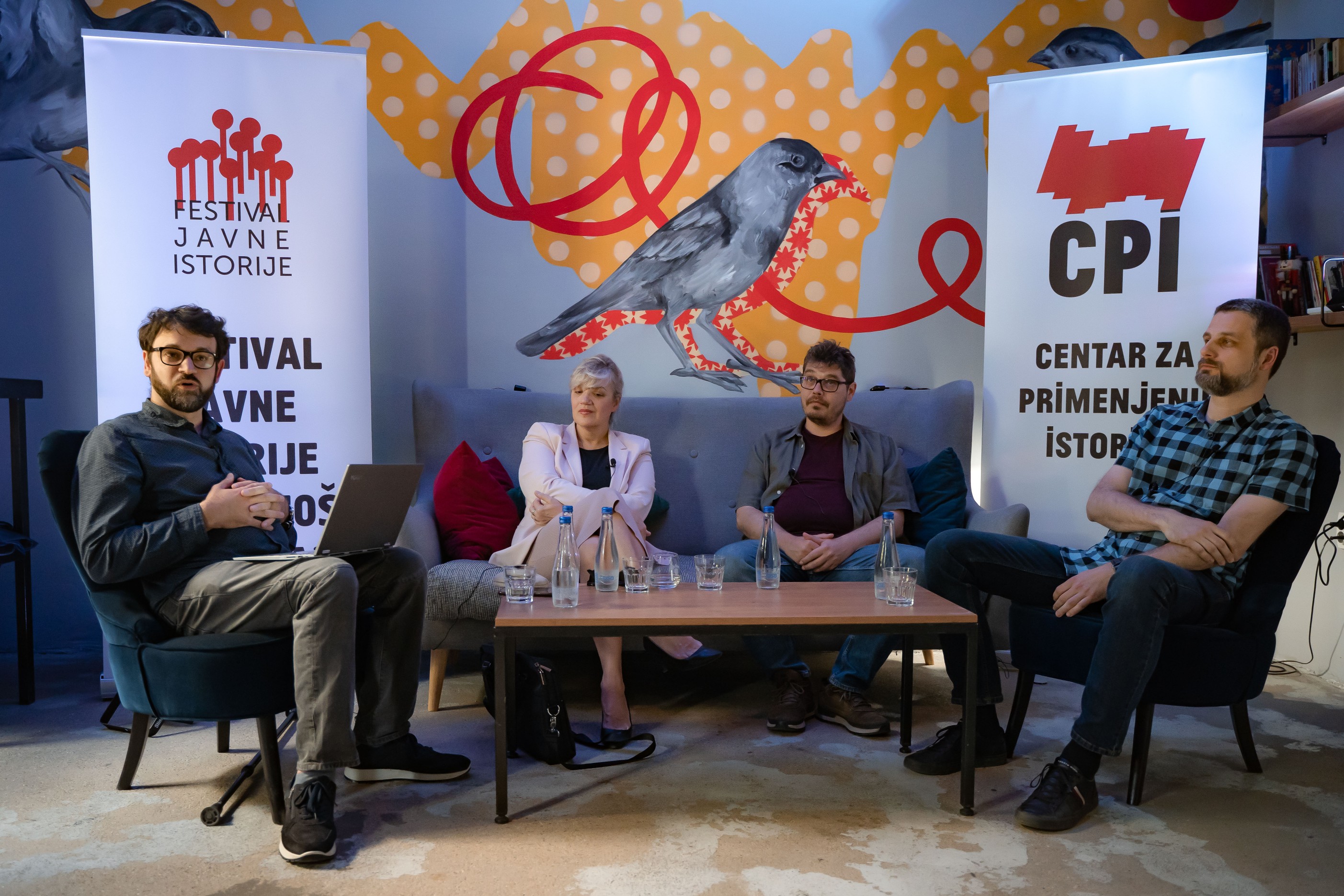
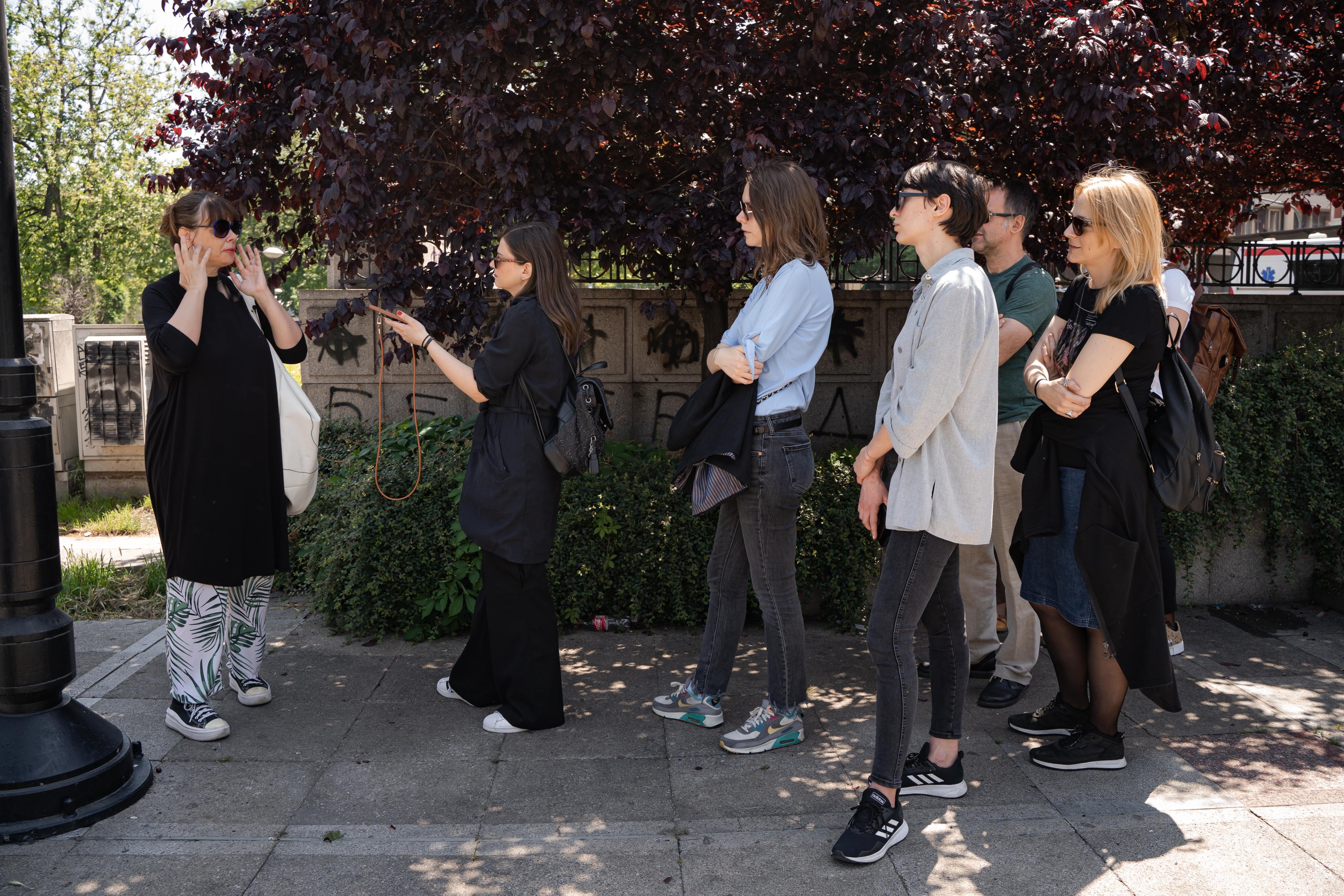

Environment and Energy
In the Energy and Environment component, the focus of HBS was on topics of energy transition. Bearing in mind that Serbia has not yet implemented most of the reforms from the RED II directive, such as the establishment of Energy Communities, HBS Belgrade has prepared a study with recommendations that recognize citizens not only as end customers or consumers but also as active participants in an energy market. We also took active part in organizing discussions about critical raw materials in Serbia, such as lithium. In a series of debates and study visit to Berlin and Brussels, participants from Serbia established valuable contacts with German decision makers from the Foreign Office and followed the adoption of the EU Critical Raw Materials Act, which will affect Serbia as well.
A Guide to Energy Efficiency in Residential Communities
This publication provides citizens with information and practical advice on improving the energy efficiency of their homes and their buildings.
The Network of Good Energy, consisting of energy managers from various municipalities throughout Serbia, celebrated 5 years of work this year. This is a short documentary of interviews with the energy managers and experts who make up the Network on their work and future plans.
Prvih pet godina Mreže dobre energije - Heinrich Böll Stiftung - Srbija, Crna Gora, Kosovo
 Watch on YouTube
Watch on YouTube
Independent Culture
Progressive, gender-sensitive, and alternative cultural spaces continue to shrink in our program countries due to centralized cultural policies in service of nationalism. HBS Belgrade supports the efforts of activists in the field of independent culture, as well as artists who are facing ever more precarious working conditions, to decentralize and denationalize culture, and establish regional cooperation through art.
Autostrada Biennale
Belgrade-based artist Darinka Pop-Mitić investigates artifacts and events that can elaborate new meanings around the collapse of Yugoslavia in relation to gender, class, and ethnicity. For this newly commissioned work, Pop-Mitić seeks to fulfil the wish expressed by Didarja Dukagjini, a Prizren- born Yugoslav heroine, a symbol of women’s emancipation, to walk freely through her hometown, where her struggle for freedom began. The paintings design a path that leads visitors from Motrat Qiriazi primary school to Dukagjini’s family home. A libretto completes the project and is distributed in three languages (Albanian, Turkish, and English) at Pykë.
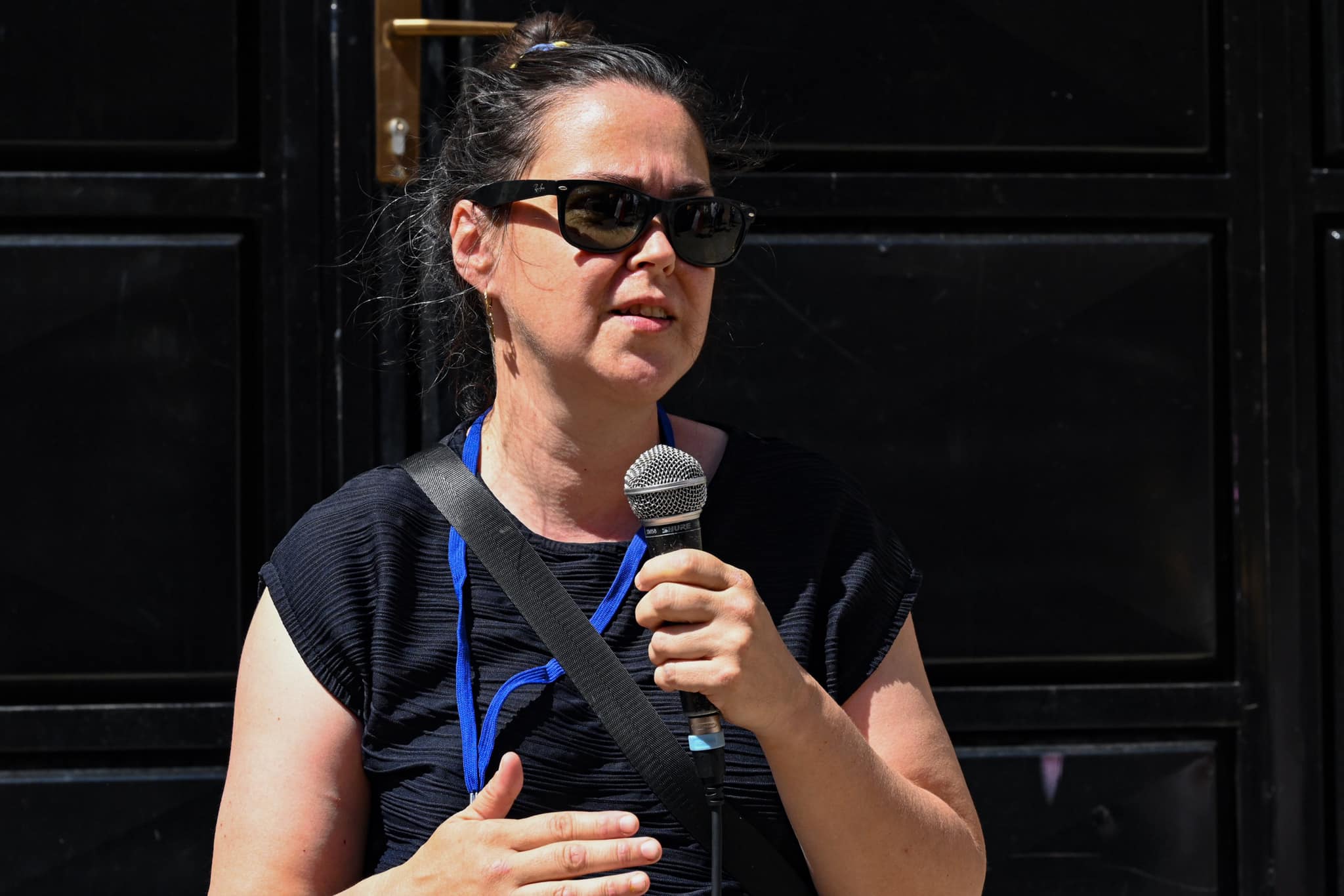
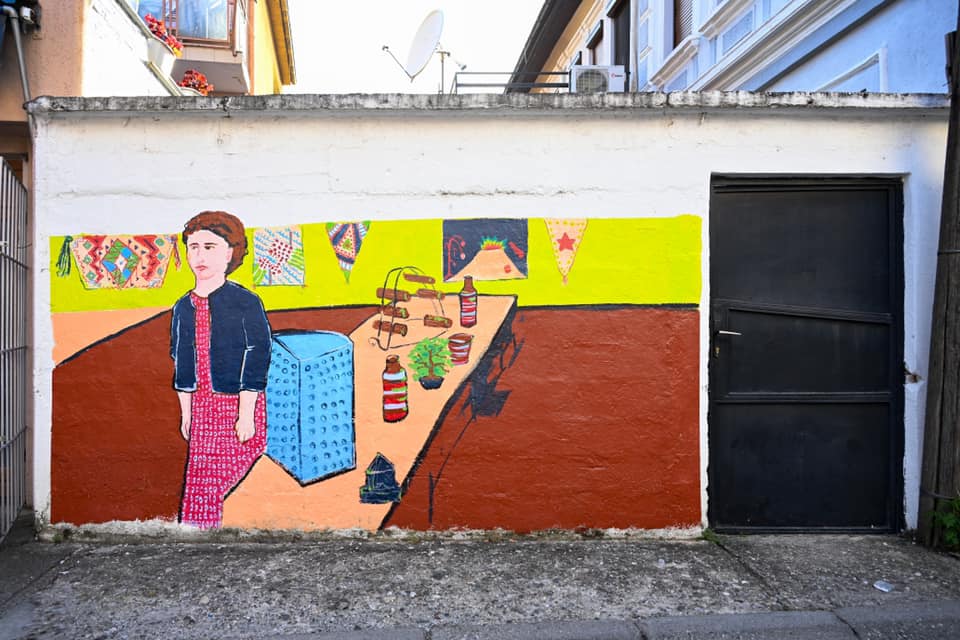

Foundation 17
This year's May classes, led by continental philosopher Margret Grebowicz, introduced students to key concepts in ecofeminist and queer critique of the contemporary environmental movement and the ecological turn. Queering ecology aims to create diverse and inclusive self-aware knowledge and practices that invite us to interact with the natural world around us in deeper ways. Co-presence and interconnection, essential aspects of coexistence and interaction in the network of ecosystems today, fundamentally challenge existing philosophical frameworks, especially those which helped to create the concepts of nature and environment.
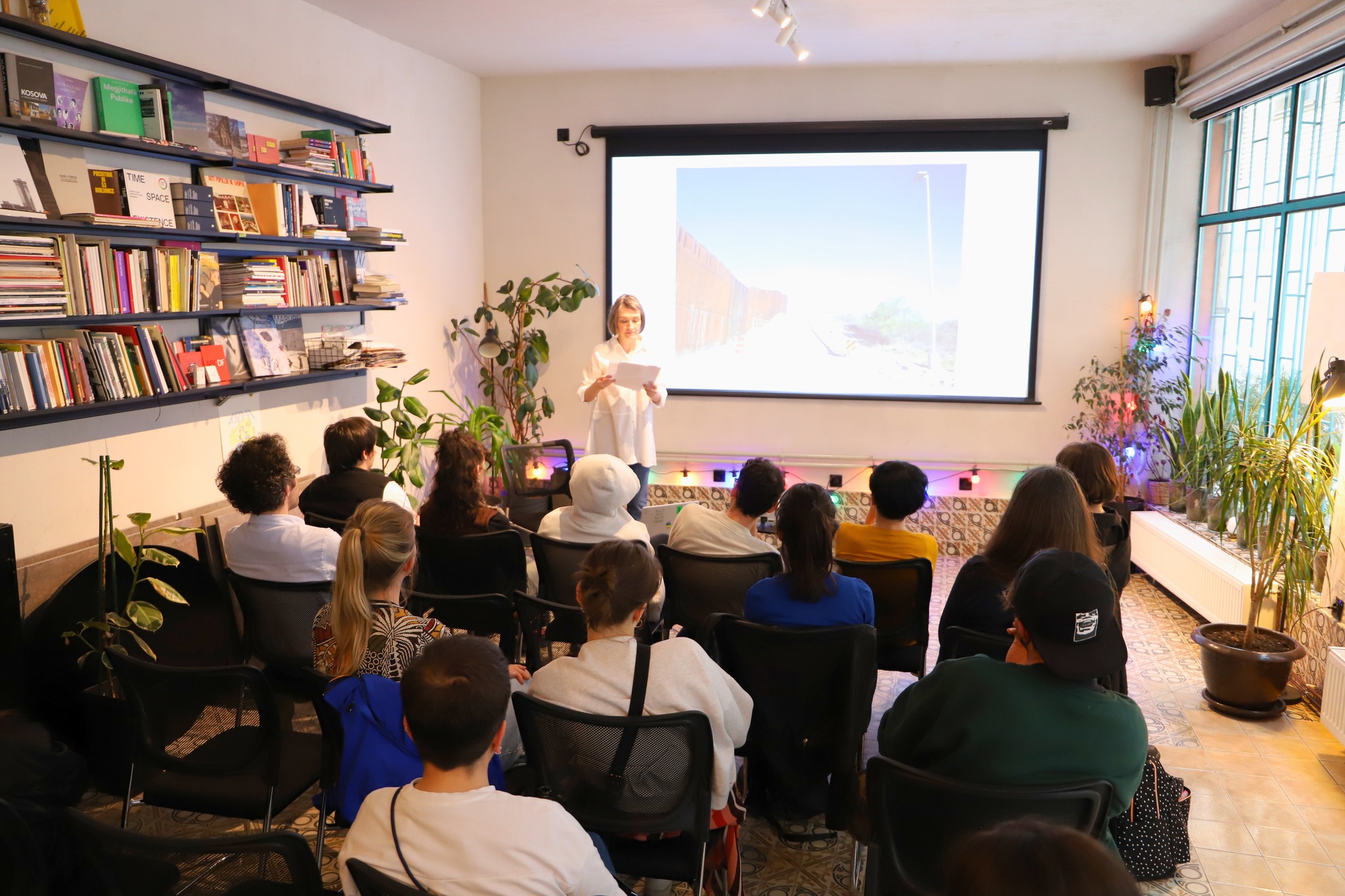


"Sceniranje" Podcast
The "Sceniranje" podcast, initiated by the Independent Cultural Scene of Serbia (NKSS) aims to contribute to the greater visibility of the independent cultural scene, which is mostly ignored by the mass media. One of the topics on the podcast this season was the campaign Nismo u javnom interesu (We are not in the public interest), shedding light on the budgeting decisions of the Ministry of Culture, which fails to support independent culture, while generously supporting projects of "national" interest.
Feminism and LGBTIQ+ Rights
The field of women's and LGBTIQ+ rights in the region is one where our partners are in the position of defending the rights and freedoms already guaranteed by the law against increasingly vocal attacks from right wing groups. That is why HBS Belgrade has supported efforts to counter anti-gender narratives in the region, and to document and report hate-motivated incidents against LGBTIQ+ people.
Gender and Politics Research Network in South-East Europe
GenPol SEE is an interdisciplinary and cross-institutional group of academics gathered around the need to counter the rising anti-gender movement in our region. In November, we supported the Institute for Philosophy and Social Theory and the Institute of Social Science in organizing a meeting of the group. Topics discussed included the controversy around the use of gender-sensitive language in public communication, various anti-gender mobilizations in the post-Yugoslav space, as well as the development of two upcoming academic books on anti-gender tendencies in the region.
